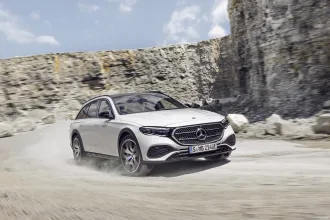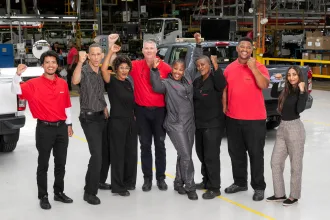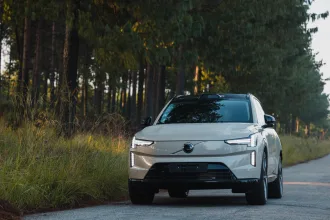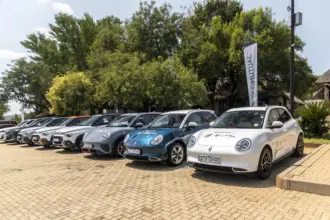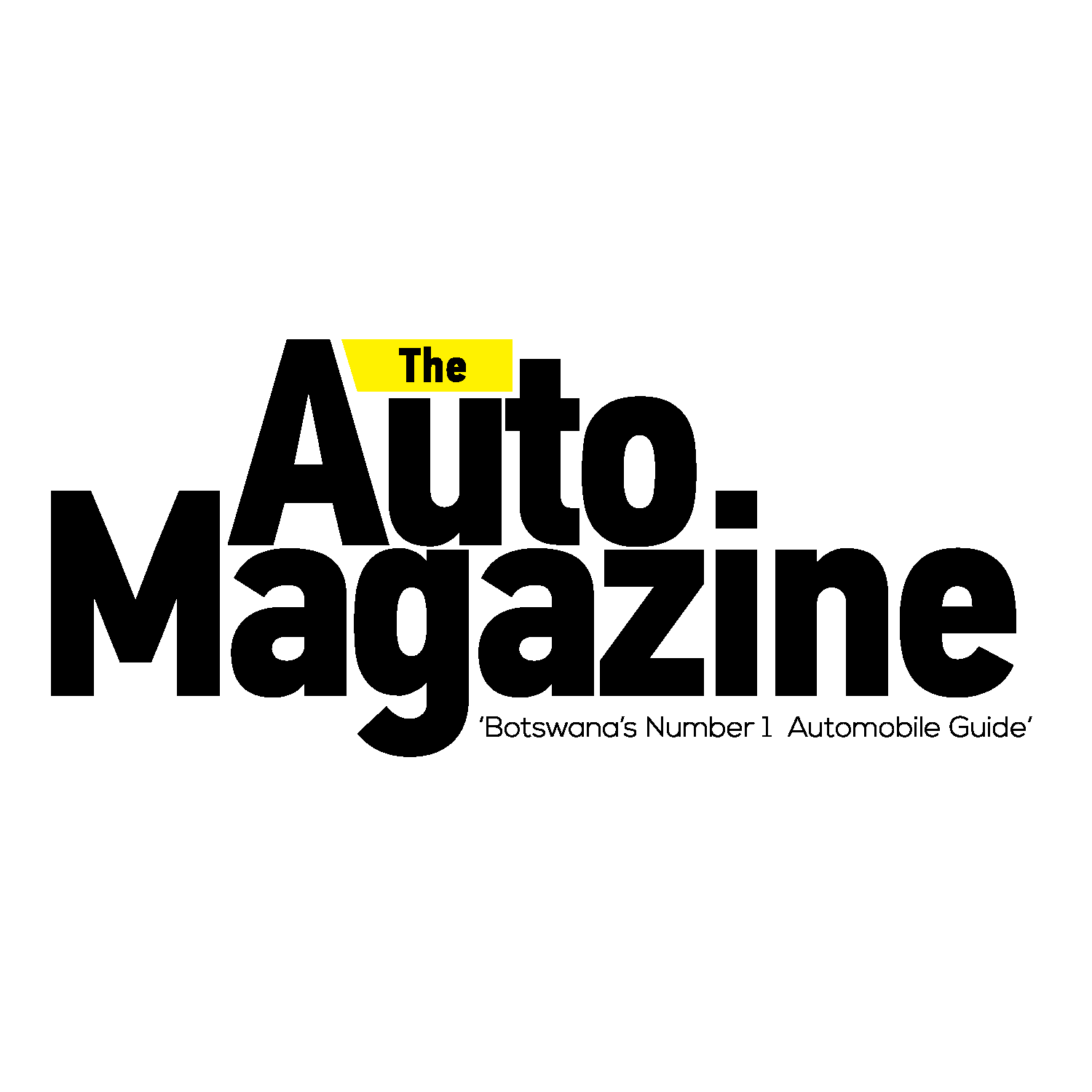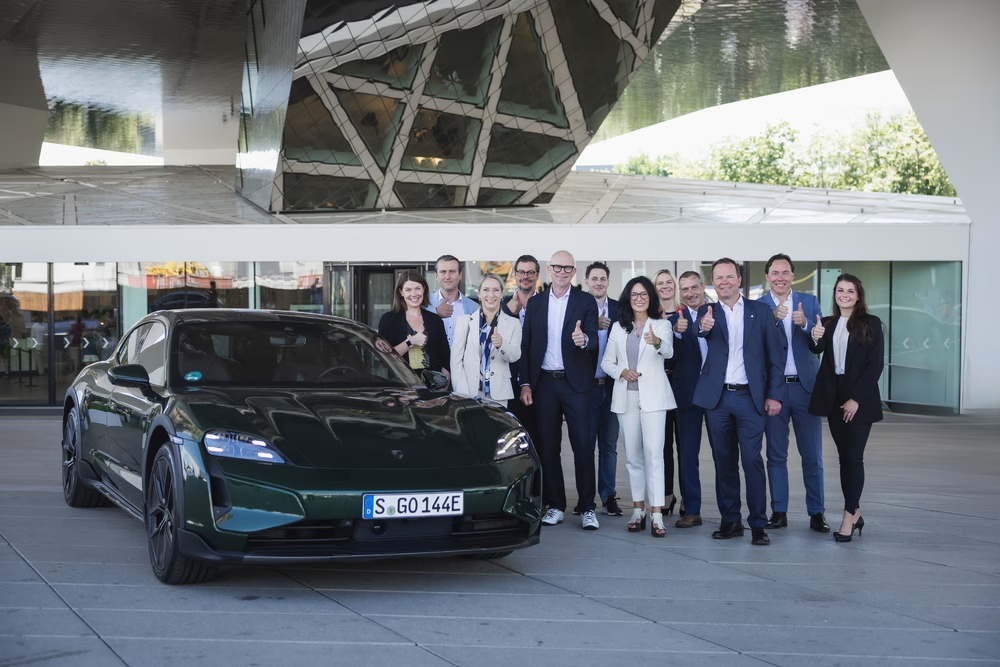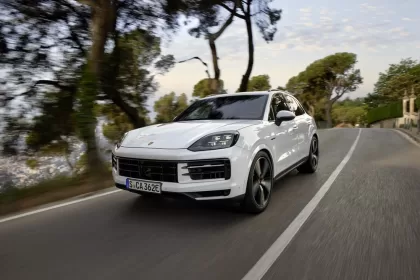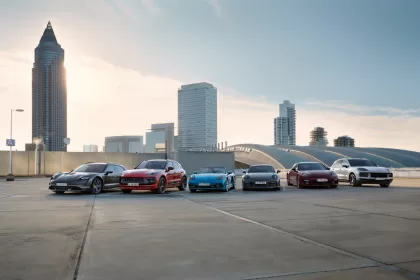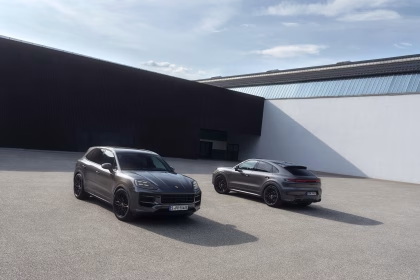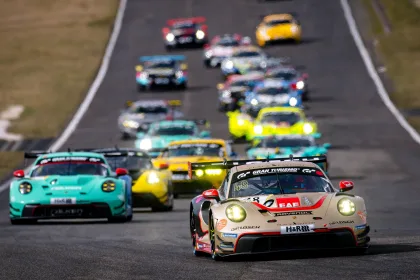- Possibility of significant CO₂ reduction: aluminium primary material with an ecological footprint of less than 4 kilograms of CO₂ per kg of aluminium
- Joint development of aluminium alloys with an increased secondary proportion of up to 75 per cent post-consumer scrap
- Technical collaboration: the proportion of recycled material used in car projects will increase significantly in the coming years
- Transparent supply chain: the raw material can be traced back to the mine
Porsche substantiates its collaboration with Norwegian aluminium company Hydro: representatives of both companies have contractually specified the possibility of delivering carbon-reduced primary aluminium as well as secondary aluminium with a high proportion of recycled material. Within their technical collaboration, Porsche and Hydro are also testing where aluminium with an even higher proportion of recycled material can be used. The sports car manufacturer is working towards a carbon-neutral balance sheet across its value chain for its newly produced cars by 2030. Aluminium is an important part of this.
Last year, the partners announced their co-operation with a Letter of Intent (LOI). They have now specified their delivery targets: for widespread use in its sports car production, Porsche and its suppliers will have access to carbon-reduced aluminium with an ecological footprint of less than 4 kg of CO₂ per kg of aluminium. Renewable energy will be used in the production of this raw material. Hydro will produce the primary metal in Norway using electricity from renewable sources, mainly from hydro power. This reduces the carbon footprint of the light alloy by about 75 per cent compared to the global average of primary aluminium production. The carbon footprint specifies the quantity of greenhouse gases released and refers to all the emissions from the mining to the resulting raw material.
The two companies are not only aiming to further reduce these total emissions, they also want to increase their use of secondary materials from post-consumer scrap. These are materials disposed of by private households or commercial, industrial and institutional facilities after a product has been used. It is expected that by 2027/2028, Hydro will be supplying carbon-reduced aluminium with a recycled proportion of at least 75 per cent. Porsche and Hydro are also testing the areas of the car in which aluminium with an even higher proportion of recycled material can be used.
“The collaboration with Hydro is an important milestone for Porsche on our path to decarbonisation along the entire value chain,” says Barbara Frenkel, Executive Board Member for Procurement at Porsche AG. “The partnership is also making a contribution to responsible procurement, because Hydro’s aluminium supply chain is transparent.”
“Our collaboration with pioneers like Porsche supports Hydro’s ambition to change the game for sustainability in the aluminium industry. Together, in this long-term strategic partnership, Hydro and Porsche will push forward innovative solutions and business models, aiming to drive decarbonization and circularity in the automotive industry,” says Eivind Kallevik, President and CEO of Norsk Hydro.
As a lightweight material, aluminium is playing an increasingly important role for electric cars in particular. For example, it makes up around 30 per cent of the total weight of the Taycan. Apart from the front and rear aprons, the entire shell of the electric sports car is made of aluminium.

